Improving Vision Health: Diet Tear Quality and Eye Care Essentials
Table of Contents []
- Diet Tear Quality
- The Juicy Truth About Hydration and Tear Production
- Omega-3s: The Fatty Acid Your Eyes Crave
- The Impact of Antioxidants on Eye Health
- Eliminating Eye Enemies: Foods to Avoid for Better Tear Quality
- Nutrient Deficiencies and Their Effect on Tears
- Balancing Blood Sugar for Optimal Eye Health
- Staying Active: Exercise's Role in Tear Production
- Personalized Nutrition for Your Tears
- You're Not Alone: Olympic Ophthalmics's Commitment to Your Eye Health
- Ready to Take Control of Your Tear Health?
Diet Tear Quality
Are you noticing that your eyes feel dry, gritty, itchy, or just plain tired? We understand how uncomfortable that can be. But have you ever wondered how your diet might impact the quality and quantity of your tears? It's a topic worth exploring because the right balance of nutrients can make a world of difference for your eye health. Let's dive into the importance of diet for tear production and maintaining those precious peepers in top condition!
The Juicy Truth About Hydration and Tear Production

First things first, let's talk about hydration. Your body needs water to function correctly - and that includes making tears. If you're not sipping enough H2O throughout the day, your eyes might be feeling the brunt of it. On top of drinking plenty of fluids, munching on water-rich fruits and veggies can also contribute to your hydration status, and in turn, tear quality.
Now, you may think that staying hydrated is a no-brainer, but it's surprisingly easy to forget to drink water during our busy days. Carrying a water bottle and infusing your water with fruits or herbs can make hydration more enjoyable. Remember, when you keep your body hydrated, you're also caring for your eyes!
Signs of Dehydration to Watch For
How can you tell if you're not getting enough water? Look out for symptoms like dry mouth, thirst, dark urine, and, you guessed it, dry eyes. If you're experiencing any of these, it might be time to up your water intake. Don't wait until you're parched; keep those fluids flowing!
Foods That Boost Hydration
Water isn't the only way to stay hydrated. Foods with high water content can also contribute. Think cucumbers, oranges, and watermelon. These tasty treats are not only refreshing but they also provide your body with essential hydration.
The Role of Water in Tear Production
Your tears are made up of water, oils, mucus, and antibodies. Water is the key component here, and without it, your tear film can't do its job properly, leaving your eyes feeling uncomfortable. Ensure you're consuming enough water each day to support healthy tears.
Omega-3s: The Fatty Acid Your Eyes Crave

Omega-3 fatty acids are power players when it comes to eye health. These essential fats can't be produced by the body and must be obtained through our diet. They serve an important role in maintaining the health of the meibomian glands, which are responsible for providing the oils that keep our tears from evaporating too quickly.
When we incorporate omega-3-rich foods into our diet like fish, flaxseeds, and walnuts, we help ensure these oils are high-quality and can do their job efficiently. If you"ve ever been scolded for not eating your fish when you were little, there's wisdom in that advice - it's fantastic for your eyes!
Sources of Omega-3 Fatty Acids
Not sure where to get your omega-3s? Here's a quick list:
- Fatty fish such as salmon, mackerel, and sardines
- Chia seeds and flaxseeds
- Walnuts
- Fortified products like eggs and yogurt
Benefits of Omega-3s Beyond Tear Production
Omega-3 fatty acids are like the Swiss Army knife of nutrients. Beyond supporting tear production, they can help reduce inflammation throughout the body, support heart health, and may even improve brain function. Talk about a multitasking nutrient!
Easy Ways to Incorporate Omega-3s Into Your Diet
If fish isn't your thing, no worries! You can blend chia seeds into your smoothie, sprinkle walnuts on your salad, or switch to omega-3-fortified eggs for breakfast. Small changes in your diet can lead to big benefits for your eyes.
The Impact of Antioxidants on Eye Health

Moving on to another key player: antioxidants. These protective substances can counteract the damage caused by free radicals, which can lead to oxidative stress - a no-no for eye health. Antioxidants like vitamins C and E, lutein, and zeaxanthin all play a role in maintaining a healthy tear film and overall eye health.
Eating a rainbow of fruits and vegetables ensures that you'll get a broad spectrum of antioxidants to protect your eyes. So go ahead, pile those leafy greens, berries, and carrots onto your plate your eyes will thank you!
Antioxidant-Rich Foods for Your Shopping List
Here's a quick list of antioxidant-powered foods to fuel your eyes:
- Citrus fruits like oranges and lemons for vitamin C
- Almonds and sunflower seeds for vitamin E
- Kale and spinach for lutein and zeaxanthin
- Sweet potatoes and carrots for beta-carotene
How Antioxidants Help Maintain Tear Quality
Antioxidants are like the body's personal bodyguards, safeguarding the delicate components of our tears. By reducing oxidative stress, they help keep the tear film stable and your eyes comfortable and well-lubricated.
The Big Picture: Antioxidants and Overall Health
While we're focusing on eye health here, let's not forget the big picture. Antioxidants contribute to reducing the risk of many chronic diseases, making them an all-star addition to any health-conscious diet. It's a win-win for your body and your peepers!
Eliminating Eye Enemies: Foods to Avoid for Better Tear Quality

Sometimes, it's not just about what you should eat, but also what you should limit or avoid. Certain foods have been linked to dry eye symptoms and poor tear quality. For instance, too much caffeine can dehydrate you, while high levels of salt can lead to fluid retention and disrupt the delicate balance of your tear film.
It's all about moderation. You don't have to give up your favorite treats entirely, but being mindful of their consumption can promote better eye health and improve your tear quality.
Caffeine: A Double-Edged Sword
While a cup of coffee can give you that much-needed boost, excess caffeine can lead to dehydration. So enjoy your brew, but balance it with plenty of water and other hydrating beverages throughout the day.
Salt: Finding the Right Balance
A high-sodium diet can upset your fluid balance, which may affect your tears. Keep an eye on how much salt is in your food, and try to enjoy the natural flavors of your meals without the added sprinkle.
Sugary Foods and Refined Carbs: The Sweet Trap
Sugar and refined carbs can cause spikes in blood sugar levels that may lead to inflammation, potentially impacting tear production. Opt for complex carbs and natural sugars found in fruits instead.
Stop Your Dry Eye Now.
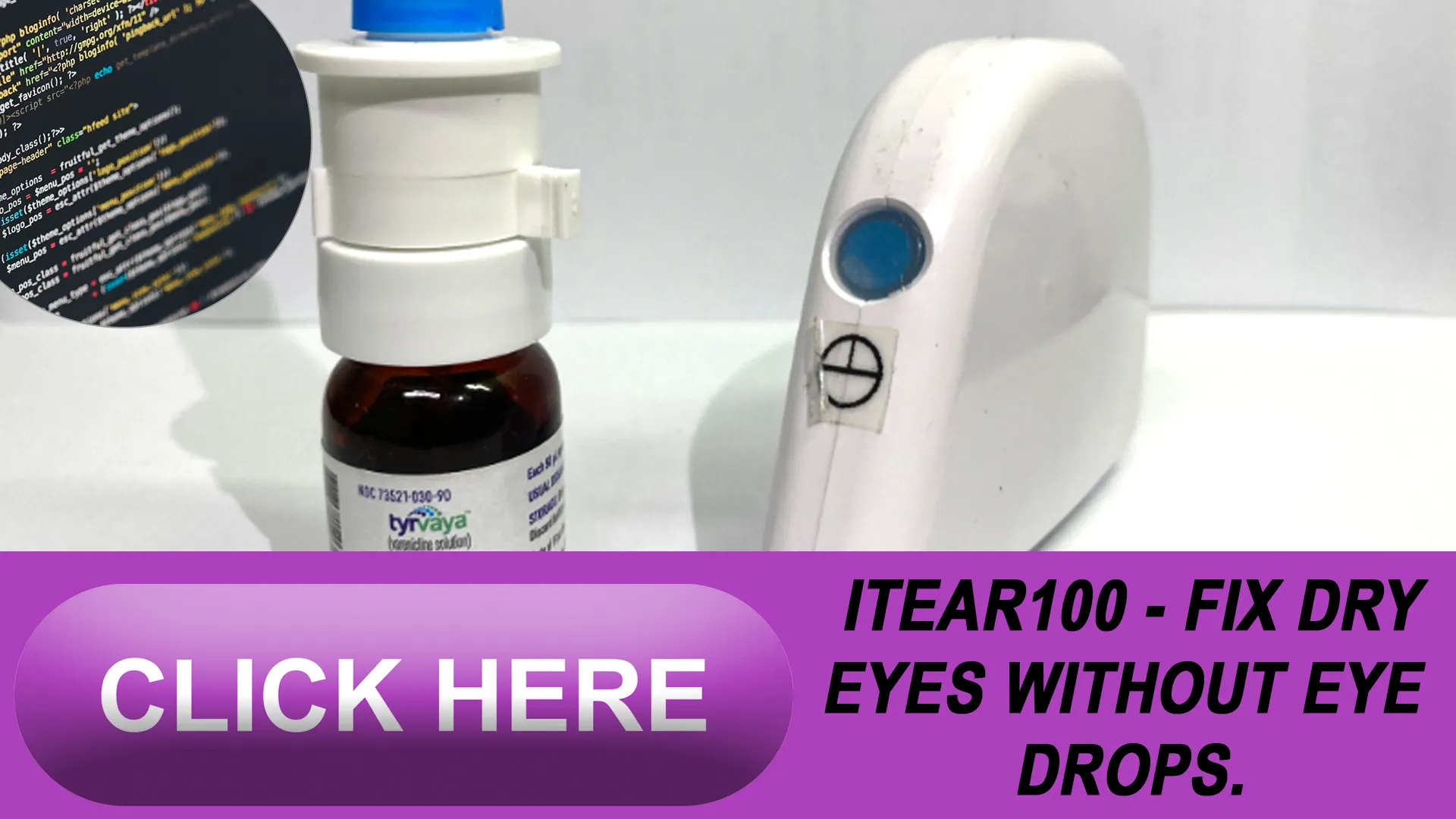
You're here because you have eye irritation or dryness, right? Well, you can stop having that problem. The iTear100 stops your dry eye in just seconds per use, AND you'll need it less as you use it! Click the image above - get relief now, and finally be free of dry eye issues for good!
Stop Your Dry Eye Now.
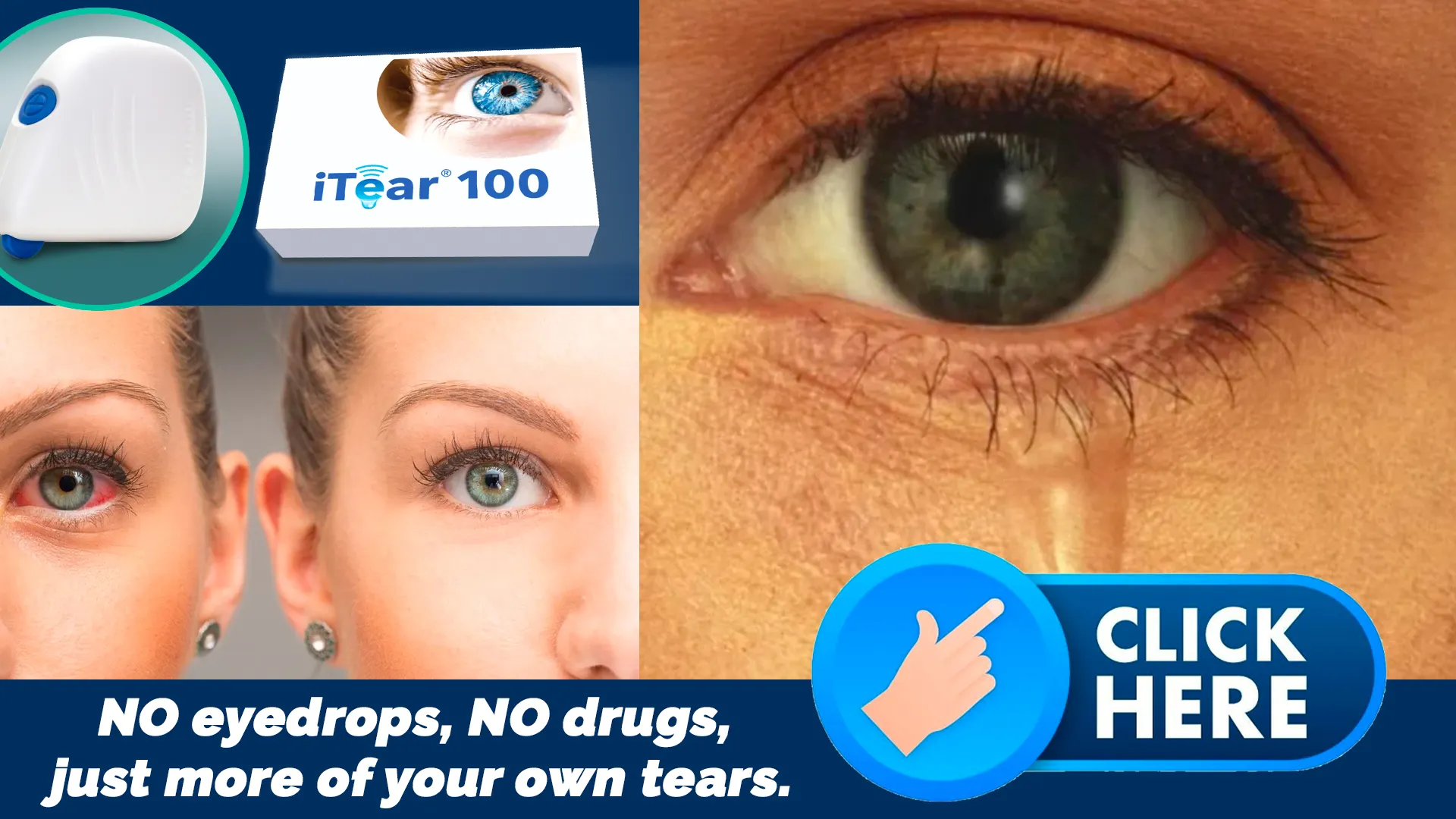
You're here because you have eye irritation or dryness, right? Well, you can stop having that problem. The iTear100 stops your dry eye in just seconds per use, AND you'll need it less as you use it! Click the image above - get relief now, and finally be free of dry eye issues for good!
Nutrient Deficiencies and Their Effect on Tears

Did you know that being low in certain nutrients can take a toll on your tear quality? Deficiencies in vitamins A and D, for instance, have been linked to reduced tear production and compromised eye health. Ensuring you're getting enough of these vitamins is crucial for maintaining a healthy tear film.
Supplements can help bridge the gap if your diet isn't providing all the nutrients you need, but it's always best to try to get vitamins from food sources first. Foods rich in these vitamins are generally good for your overall health, so you'll be doing your whole body a favor.
Vitamin A: The Vision Vitae
Vitamin A is essential for maintaining the health of your cornea and conjunctival membranes. Foods like liver, carrots, and sweet potatoes are excellent sources of this vital nutrient.
Vitamin D: The Sunshine Vitamin
Vitamin D isn't just crucial for bone health; it also plays a role in eye health and tear quality. Fatty fish, egg yolks, and fortified foods can help you top up your vitamin D levels, along with safe sun exposure.
Addressing Nutrient Deficiencies
If you suspect you're not getting enough of certain vitamins, talk to your healthcare provider. They can recommend tests and suggest dietary changes or supplements to ensure your body and eyes are well-nourished.
Balancing Blood Sugar for Optimal Eye Health

Steady blood sugar levels are not only important for overall health but also for the health of your eyes. When your blood sugar is balanced, it helps to prevent inflammation-a culprit that can impact tear production and quality. Choosing foods with a low glycemic index, like whole grains and legumes, can help keep your blood sugar levels on an even keel.
Remember, consistently high blood sugar can damage ocular nerves and vessels, leading to serious eye conditions. So maintaining blood sugar levels through a healthy diet isn't just smart it's essential for your vision health.
Low Glycemic Foods for Eye Health
By picking foods like oatmeal, quinoa, and leafy greens, you'll give your body the steady energy it needs without the blood sugar rollercoaster. These foods digest more slowly, providing gradual energy release and stability for your eyes.
Snack Wisely to Support Your Tears
Snacks can either be your blood sugar's best friend or worst enemy. Choose snacks that have a mix of protein, fiber, and healthy fats to keep your blood sugar in check and your tears flowing correctly.
Understanding the Glycemic Index
The glycemic index (GI) measures how quickly foods raise blood sugar levels. Aim for lower GI foods most of the time to support your overall and eye health. Your body and your peepers will appreciate the gentle approach to energy release.
Staying Active: Exercise's Role in Tear Production
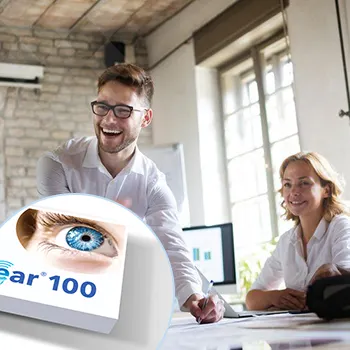
It's not all about what you eat; how you move matters too! Regular exercise can stimulate circulation, including to the eyes, which in turn can promote healthy tear production. So lace up those sneakers or roll out that yoga mat - your eyes will benefit from the workout as much as the rest of your body.
Just be sure to stay hydrated and nourished as you stay active. Your body loses fluids as you sweat, so replace what you"ve lost with water and a balanced diet. This will ensure you and your eyes have what they need to stay healthy and hydrated.
Eye-Friendly Workouts
Whether you prefer a brisk walk, a cycling session, or a dance class, active movements are fantastic for your eye health. Pick activities you enjoy to help keep motivation high and those tears healthy.
Recovering from Exercise: Nutrition Matters
After exercising, your body needs proper nutrients to recover. A well-rounded meal with protein, carbs, and healthy fats will support your body's recovery process, including the health of your eyes.
Nutrition and Hydration Post-Workout
Don't forget to hydrate and replenish electrolytes after working out. Coconut water or a small snack with a balance of salt and potassium can help. Taking care of your body post-exercise can have ripple effects on your eye health, too.
Personalized Nutrition for Your Tears
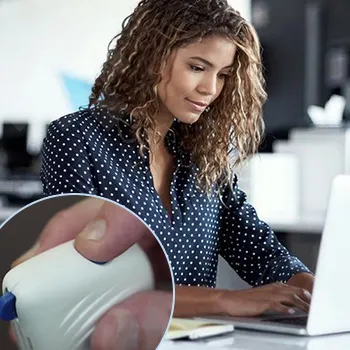
Understanding the general guidelines for a tear-friendly diet is a great start, but everyone's different. what works for one person may not work the same for another. So how do you figure out what's best for your eye health? That's where personalized nutrition comes in.
Working with a healthcare professional can help tailor your diet to your specific needs. Factors like genetics, environment, and lifestyle all play a role in determining the ideal diet for your eye health. It may take some trial and error, but finding a diet that supports your tears is a journey worth embarking on.
Finding the Right Diet for You
Consider speaking with a dietitian or your healthcare provider to get a tailored nutrition plan that takes into account your unique health situation. They can help create a diet that supports not just your tear quality, but your overall wellbeing.
Tracking Your Diet and Tears
Keeping a food diary can be an illuminating way to understand how different foods affect your tear production. Note any changes in your eyes after meals and look for patterns. It's a great tool to bring to your healthcare provider, too!
Adjusting Your Diet for Seasonal Changes
Your tear production and eye comfort needs can vary with the seasons. Being aware of how changes in weather and environment affect you can help you adjust your diet accordingly for optimal tear health.
You're Not Alone: Olympic Ophthalmics's Commitment to Your Eye Health

Embarking on a journey to improve your eye health through diet can seem daunting, but remember, iTear100 is by your side. Our partnership with Olympic Ophthalmics highlights our belief in the importance of innovative, drug-free solutions for eye health, like the impressive iTEAR100 device.
To support your tear quality through nutrition and cutting-edge technology, it all starts with a simple conversation with a doctor. We at Olympic Ophthalmics offer a straightforward online doctor's appointment to discuss the suitability of the iTEAR100 device for your needs. Once you have your prescription, a few clicks are all it takes to have the device delivered right to your doorstep. Imagine having the power to activate your natural tear pathways without any drugs or drops. With Olympic Ophthalmics , that reality is within reach.
How to Get Started with iTEAR100
Contact us at 650-300-9340 to learn more about iTEAR100 and how it can complement your dietary efforts for better tear quality. Our team is knowledgeable and ready to help you every step of the way.
Leveraging Technology for Eye Health
With today's advancements in technology, like the iTEAR100 device, maintaining optimal eye health has never been easier. Let's explore how tech can work in harmony with nutrition to enhance your quality of life.
Questions? We're Here To Help!
Have questions about the iTEAR100 or how to improve your diet for better eye health? Olympic Ophthalmics is here to assist you. Our expert team can be reached nationwide, and we're just a phone call away!
Stop Your Dry Eye Now.
You're here because you have eye irritation or dryness, right? Well, you can stop having that problem. The iTear100 stops your dry eye in just seconds per use, AND you'll need it less as you use it! Visit iTear100.com to learn more!
Ready to Take Control of Your Tear Health?
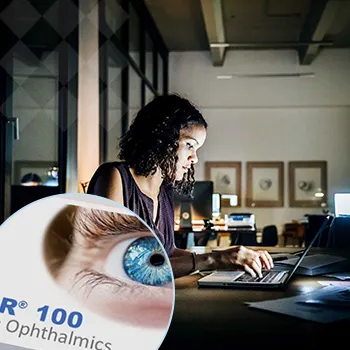
Now that you know how much diet influences tear quality, you might be wondering where to start. iTear100's dedicated team is here to guide you through the journey of enhancing your eye health through nutrition and innovative technology. Don't forget, the iTEAR100 is an incredible companion on this journey.
Achieving and maintaining eye health is a multifaceted affair, combining proper nutrition, hydration, and technology. If you're interested in learning more about the iTEAR100, or need personalized advice on how to improve your diet for healthier tears, give us a call at Olympic Ophthalmics . Our friendly experts are eager to support you! 650-300-9340
Embrace the Power of Nutrition for Eye Health
By incorporating the right balance of nutrients and staying informed, you have the power to profoundly impact your eye health. Let us help you unlock that power!
Your Eyes Deserve the Best
Your vision is precious, and with Olympic Ophthalmics , you'll get the best tools and advice to keep your eyes sparkling with health. Reach out to us to see how we can assist you further!
Act Now for Happy, Hydrated Eyes
Ready to take the next step? Don't wait to address your dry eye discomfort. Call 650-300-9340 today and let iTear100 guide you towards a bright future for your eyes.
Previous Page